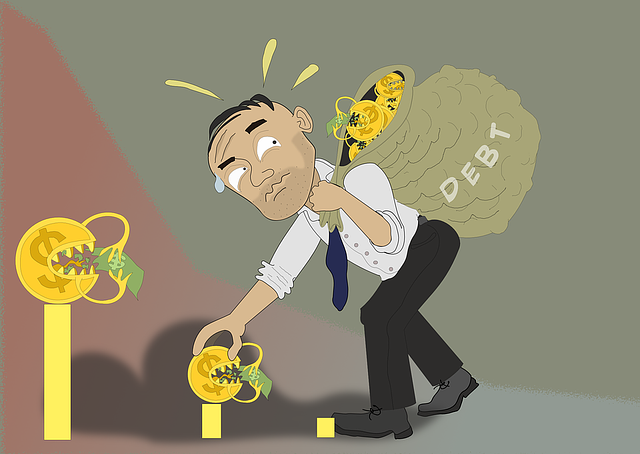In today’s fast-paced world, financial emergencies can strike unexpectedly, leaving many people searching for quick cash solutions. Two popular options for short-term borrowing are car title loans and payday loans. Both promise fast approval and easy access to funds, but they come with significant risks and high costs. If you’re wondering “car title loans vs payday loans,” this article breaks it down clearly. We’ll explore what each loan type is, their key differences, pros and cons, and ultimately, which might be better—or if you should avoid them altogether. Understanding these can help you make an informed decision and avoid falling into a debt trap.
According to financial experts, both loan types target individuals with poor credit or urgent needs, but they differ in structure, risks, and repayment terms. By the end of this 1500-word guide, you’ll have a summarized, easy-to-understand overview to weigh your options.
What Are Payday Loans?
Payday loans are small, unsecured short-term loans designed to bridge the gap until your next paycheck. Typically ranging from $100 to $500 (though some states allow up to $1,000), these loans are easy to obtain with minimal requirements. To qualify, you usually need proof of income, a bank account, and identification—no credit check is often required, making them accessible for those with bad credit.
Here’s how they work: You borrow money and agree to repay it, plus fees, on your next payday, usually within two to four weeks. The lender might post-date a check or get authorization to debit your account. Interest rates are sky-high, often expressed as fees—say, $15 per $100 borrowed—which translates to an annual percentage rate (APR) of 300% to 400% or more.
While convenient, payday loans can lead to a vicious cycle of debt. If you can’t repay on time, you might roll over the loan, paying additional fees that balloon the total cost. Regulations vary by state; some cap fees or ban rollovers, but in others, borrowers end up paying more in fees than the original amount borrowed.
Pros of Payday Loans
- Quick and Easy Access: Approval often takes minutes, with funds available the same day.
- No Collateral Required: You don’t risk losing assets like your car or home.
- Minimal Requirements: Ideal for those with poor credit or no credit history.
- Small Amounts: Perfect for minor emergencies without overborrowing.
Cons of Payday Loans
- Extremely High Interest Rates: APRs can exceed 400%, making them one of the costliest borrowing options.
- Short Repayment Period: Due in 2-4 weeks, which can strain your budget if your next check is already spoken for.
- Debt Cycle Risk: Rollovers and extensions lead to repeated borrowing and escalating fees.
- Limited Loan Amounts: Not suitable for larger needs, as they’re capped at small sums.
In summary, payday loans offer immediate relief but at a steep price, often exacerbating financial woes rather than solving them.
What Are Car Title Loans?
Car title loans, also known as auto title loans, are secured short-term loans where you use your vehicle’s title as collateral. If you own your car outright (no existing liens), you can borrow against its value—typically 25% to 50% of the car’s worth, ranging from $100 to $10,000 or more, depending on the lender and your vehicle’s appraisal.
The process is straightforward: Hand over your car title (and sometimes a spare key) to the lender, get the cash, and keep driving your vehicle while repaying. Terms usually last 15 to 30 days but can extend to several months with installments. Interest rates are high—around 300% APR—but often lower than payday loans because of the collateral. If you default, the lender can repossess and sell your car to recover the debt.
These loans are available in about half of U.S. states, with varying regulations. For example, some limit APRs or loan amounts, while others have no caps. Like payday loans, they’re marketed as quick fixes but carry heavy risks, especially vehicle loss, which can disrupt daily life like commuting to work.
Pros of Car Title Loans
- Larger Loan Amounts: Borrow more based on your car’s value—up to $20,000 in some cases.
- Lower Interest Rates Than Payday Loans: Secured nature often means slightly better rates (though still exorbitant).
- Longer Repayment Terms: More time to pay back compared to payday’s tight deadlines.
- Keep Your Car: Drive it during the loan period, as long as payments are made.
Cons of Car Title Loans
- Risk of Repossession: Defaulting means losing your vehicle, which could be devastating.
- High Fees and APRs: Still predatory, with costs that can triple the borrowed amount over time.
- Vehicle Ownership Required: Must own your car free and clear; not an option for everyone.
- Potential for Debt Trap: Extensions add fees, similar to payday rollovers.
Car title loans provide more substantial funds but gamble with an essential asset, making them a high-stakes choice.
Key Differences Between Car Title Loans and Payday Loans
To make the comparison clearer, here’s a side-by-side table highlighting the main distinctions:
| Aspect | Car Title Loans | Payday Loans |
|---|---|---|
| Collateral | Required (vehicle title) | None (unsecured) |
| Loan Amount | $100 to $10,000+ (based on car value) | $100 to $500 (sometimes up to $1,000) |
| Repayment Term | 15-30 days, up to months with installments | 2-4 weeks |
| Interest Rate (APR) | Around 300% (lower than payday) | 300%-400%+ |
| Approval Requirements | Proof of income, ID, vehicle title | Proof of income, bank account, ID |
| Risks | Vehicle repossession | Debt cycle from rollovers |
| Availability | About 25 states | Most states, with regulations varying |
This table shows that while both are expensive, car title loans offer more flexibility in amount and term but with added security risks.
Pros and Cons: A Deeper Comparison
When pitting car title loans vs payday loans, neither emerges as a clear winner due to their predatory nature. However, let’s break down the overall pros and cons to see how they stack up.
Combined Pros
- Speed: Both provide funds quickly, often within hours.
- Bad Credit Friendly: Minimal credit checks make them accessible.
- No Long-Term Commitment: Short terms mean you’re not locked in for years.
Combined Cons
- High Costs: Exorbitant APRs make them far more expensive than traditional loans.
- Debt Cycles: Easy to get stuck borrowing repeatedly to cover fees.
- Regulatory Gaps: In some states, lack of oversight allows abusive practices.
- Impact on Credit: Defaults can hurt your score, though payments don’t build credit.
In a head-to-head, car title loans might edge out for those needing larger sums or more time, but the collateral risk is a major drawback. Payday loans avoid asset loss but hit harder with rates and short deadlines.
Which Is Better: Car Title Loans or Payday Loans?
The question “which is better, car title loans or payday loans?” doesn’t have a one-size-fits-all answer—it depends on your situation. If you need a small amount quickly and can’t risk your car, a payday loan might seem “better” because it’s unsecured. However, its ultra-short term and higher APRs make it riskier for debt accumulation.
Conversely, if you require more money (say, for a major repair) and own a valuable vehicle outright, a car title loan could be preferable due to lower rates and extended terms. But ask yourself: Can you afford to lose your car? Statistics show that about 20% of title loan borrowers face repossession, which can lead to job loss or further hardship.
Experts from the FTC and credit unions warn against both, labeling them as last-resort options that often worsen financial instability. Neither is truly “better” if alternatives exist. Consider your repayment ability: If you can’t pay back promptly, the costs skyrocket. For recurring expenses, these loans are especially dangerous, as they don’t address underlying issues.
Ultimately, “better” means the lesser evil. Payday loans might suit tiny, one-off needs without assets at stake, while title loans fit bigger emergencies if you’re confident in repayment. But in most cases, neither is advisable—explore safer paths first.
Alternatives to Car Title and Payday Loans
Before committing to high-risk loans, consider these lower-cost alternatives:
- Personal Loans from Banks or Credit Unions: Lower APRs (5-36%) and longer terms; credit checks apply, but rates beat predatory lenders.
- Credit Card Cash Advances: High fees but often cheaper than payday APRs; use sparingly.
- Borrow from Friends/Family: Interest-free and flexible, though it strains relationships.
- Community Assistance Programs: Non-profits or government aid for emergencies like utilities or food.
- Side Gigs or Selling Items: Earn extra cash via apps like Uber or eBay to avoid borrowing.
- Debt Consolidation Loans: If already in debt, consolidate at lower rates.
These options prioritize sustainability over speed, helping you build better financial habits.
Conclusion
In the debate of car title loans vs payday loans, both offer quick cash but at enormous costs and risks. Payday loans are unsecured and simpler for small needs, while car title loans provide more funds with collateral backing—but neither is ideal for long-term financial health. With APRs soaring into the hundreds, they can trap you in debt cycles or lead to asset loss. Always calculate total repayment costs and explore alternatives first. If you’re in a bind, consult a financial advisor or non-profit credit counselor. Making informed choices today prevents bigger problems tomorrow.










